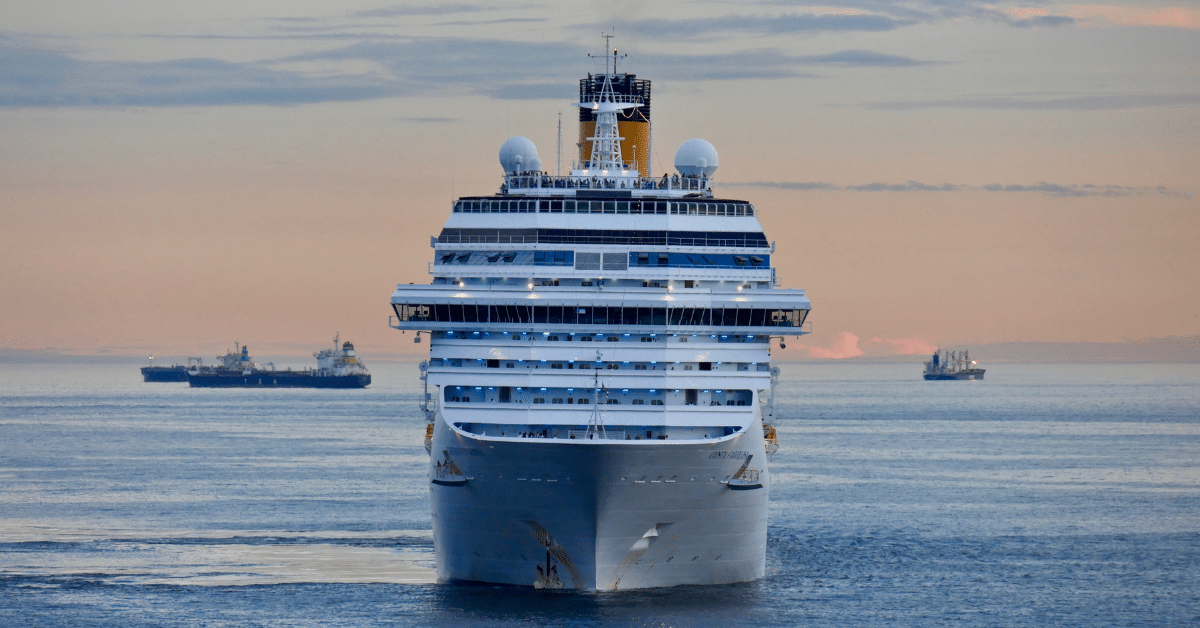
The Environmental Impact and Water Issues of Cruise Ship Gambling
Cruise ships are often seen as luxurious floating resorts, offering a wide range of entertainment, including casinos. While these onboard casinos provide leisure and excitement to passengers, they also contribute to significant environmental issues. Josh Stanfield, Executive Director of Activate Virginia and a recent graduate of our Clean Water Advocates Program, joins our podcast to explore the various ways in which cruise ship gambling negatively impacts the environment.
Energy Consumption and Emissions
Cruise ships, including their casinos, require a substantial amount of energy to operate. This energy is primarily generated by burning fossil fuels, leading to the emission of greenhouse gases such as carbon dioxide. The constant energy demand of slot machines, lighting, air conditioning, and other amenities within the casino amplifies the ship’s overall carbon footprint. As a result, cruise ships are significant contributors to air pollution and climate change.
Waste Generation
Casinos on cruise ships generate a considerable amount of waste, including paper, plastic, and electronic waste. Paper waste comes from gaming tickets, promotional materials, and receipts, while plastic waste often includes discarded drink cups and other disposable items. Additionally, the electronic waste from outdated or broken gaming machines can be harmful if not disposed of properly. This waste can end up in the ocean, contributing to marine pollution and harming aquatic life.
Water Pollution
Cruise ships often discharge wastewater into the ocean, which may contain pollutants from the casino operations. This includes cleaning agents used in the casino, chemicals from maintenance activities, and even small amounts of oil or fuel. These pollutants can have detrimental effects on marine ecosystems, leading to issues such as coral reef degradation and the decline of fish populations.
Noise Pollution
The noise generated from cruise ship casinos—such as the sounds from slot machines, music, and chatter—can disturb marine life. Many marine species rely on sound for communication, navigation, and finding food. The excessive noise pollution from cruise ships can interfere with these activities, disrupting the natural behaviors of marine animals and leading to negative ecological consequences.
Overfishing and Marine Habitat Destruction
To support the lavish lifestyle on board, including the casino’s gastronomic offerings, cruise ships often source large quantities of seafood. This demand can contribute to overfishing and the destruction of marine habitats. The depletion of fish stocks disrupts marine ecosystems and threatens the biodiversity of our oceans.
Mitigation Strategies
Cleaner Discharge Practices: Adopting advanced wastewater treatment systems can reduce the pollution caused by discharges. Get involved in local efforts, like Stanfield did in Yorktown, to see if there are environmental impact statements or public commenting periods surrounding this issue to voice your concern. Citizens can also stay tuned for the upcoming General Assembly and equip themselves with information on getting involved in the Virginia legislative process.
It is essential for stakeholders to prioritize sustainability to protect our oceans for future generations.